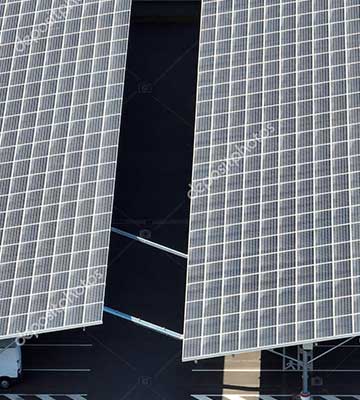Solar Panels
Solar panels, also known as photovoltaic (PV) panels, are devices that convert sunlight into electricity. They consist of multiple solar cells made from semiconductor materials. When exposed to sunlight, these cells generate direct current (DC) electricity through a process called the photovoltaic effect. This DC electricity is then converted into alternating current (AC) electricity using inverters, making it compatible with standard electrical systems in homes and businesses.
Solar panels offer a clean and renewable energy source, reducing the reliance on fossil fuels and lowering carbon emissions. They are used to generate electricity for various applications, from powering individual homes and commercial buildings to providing energy for off-grid locations and remote installations. The efficiency of solar panels can vary based on factors like sunlight intensity, panel quality, and environmental conditions.
Renewable Energy Source
Reduced Carbon Footprint
FAQs
The cost of solar panels can vary based on factors such as system size, location, panel quality, and installation expenses. While the initial investment might vary, it’s important to consider the potential long-term savings on energy bills and any available financial incentives when evaluating the overall cost.
Solar panels are built to be durable and long-lasting, typically having a lifespan of around 25 to 30 years or even more. Regular maintenance and quality components can contribute to their extended performance over time.
Solar panels are effective in a wide range of locations, but their efficiency can be influenced by factors like sunlight availability, shading, roof orientation, and local regulations. A solar provider can conduct a site assessment to determine the solar potential of your location and offer tailored recommendations.

The Future Impact
Solar energy is heralding a new era of sustainable energy and paving the way for a cleaner and brighter future. As our world seeks solutions to combat climate change and reduce our reliance on fossil fuels, solar panels stand at the forefront of this transformation. With advancements in technology, increasing efficiency, and decreasing costs, solar energy is becoming an accessible and practical choice for individuals, businesses, and communities worldwide.
- clean energy
- environmental preservation
- energy independence

